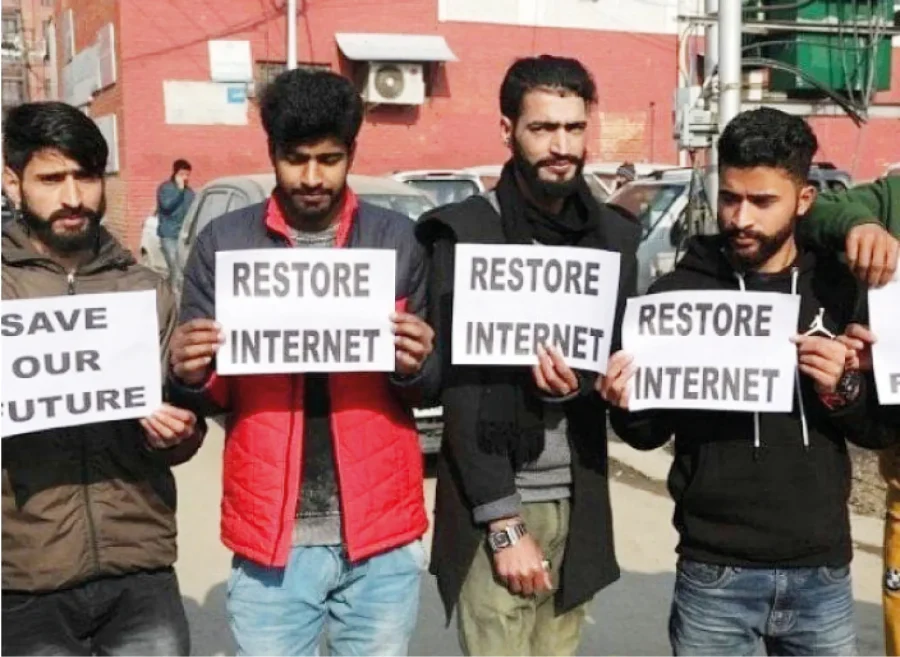Indian Prime Minister Narendra Modi’s attempt to justify the prolonged internet shutdown in occupied Jammu and Kashmir as a “governance strategy” has sparked widespread condemnation from critics, who say it was a blatant violation of human rights and an attempt to suppress dissent. According to Kashmir Media Service, in a recent media interview in New Delhi, Modi claimed that the shutdown, which lasted for over a year, was necessary to maintain peace and stability in the occupied territory. However, his comments have been met with fierce criticism, with many arguing that the shutdown was a heavy-handed approach that undermined the rights and freedoms of the people of disputed Kashmir.
The internet shutdown, which was one of the longest in the world, had severe consequences for the people of Jammu and Kashmir, including limiting access to healthcare, education, and communication. The move was widely seen as an attempt to suppress dissent and stifle the voices of Kashmiris, who have been fighting for their right to self-determination for decades.
Critics say Modi’s justification has raised serious questions about the Indian government’s priorities and commitment to democratic values. The internet is a fundamental right in today’s digital age, and shutting it down for an extended period is a disproportionate response to any perceived threat.The Indian government’s actions have undermined the trust and confidence of the people of Kashmir, who feel that their rights and freedoms are being systematically eroded. The international community has also expressed concern over the situation in Kashmir, with many calling for an end to the crackdown on dissent and the restoration of internet services.—KMS










